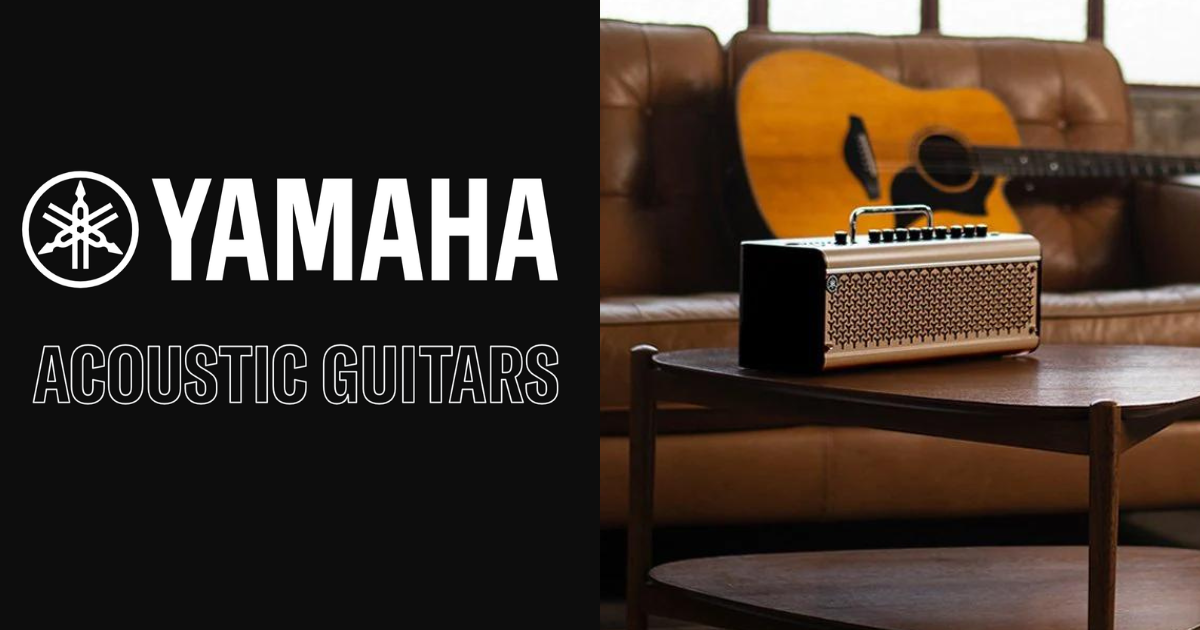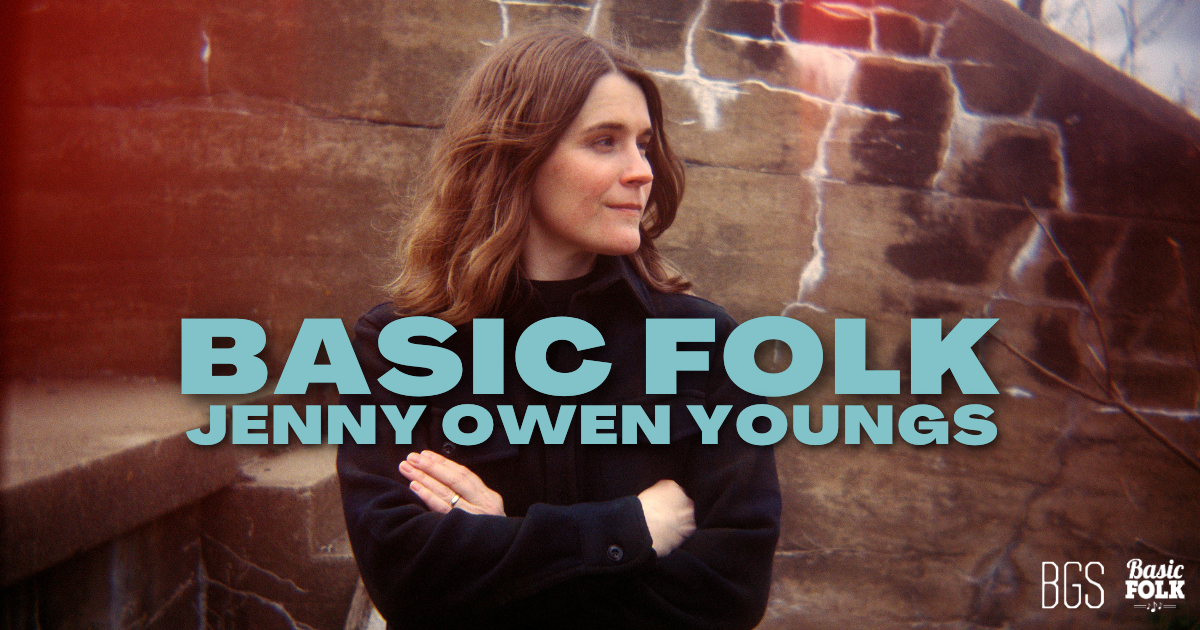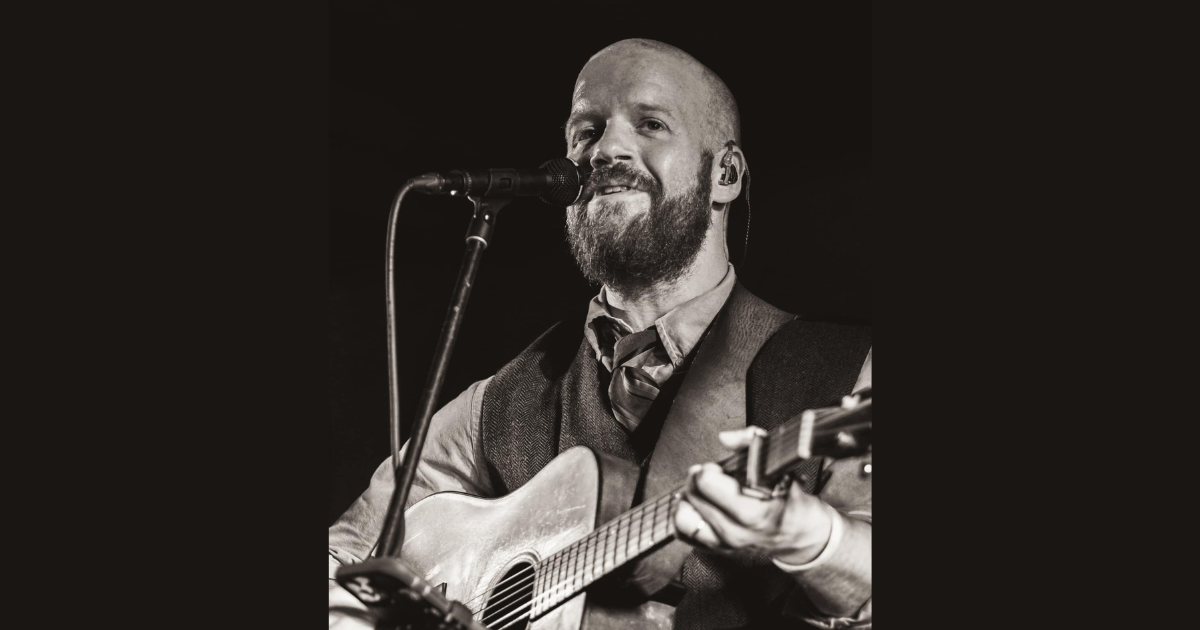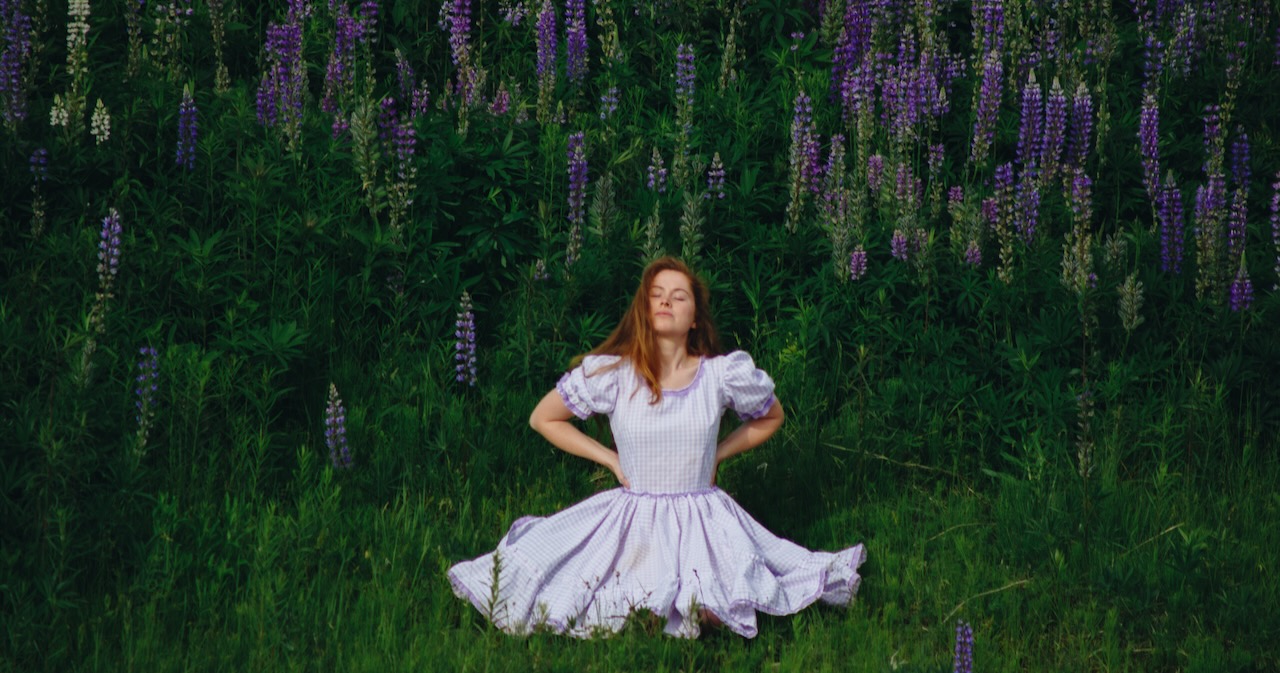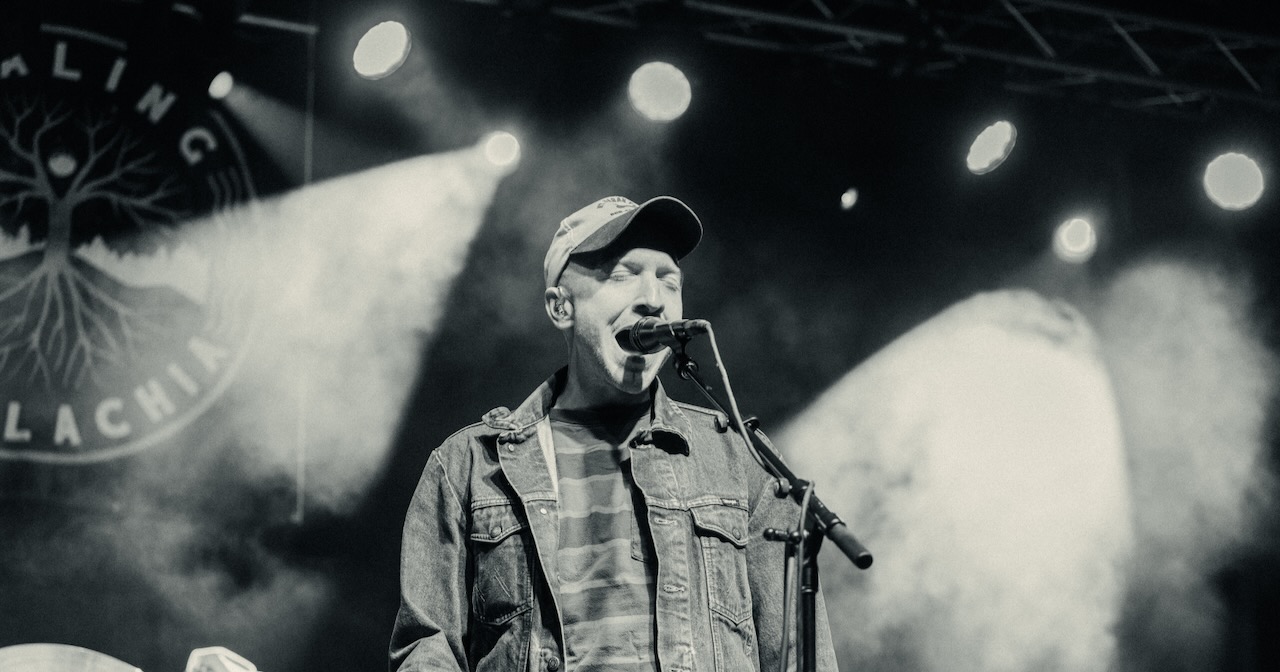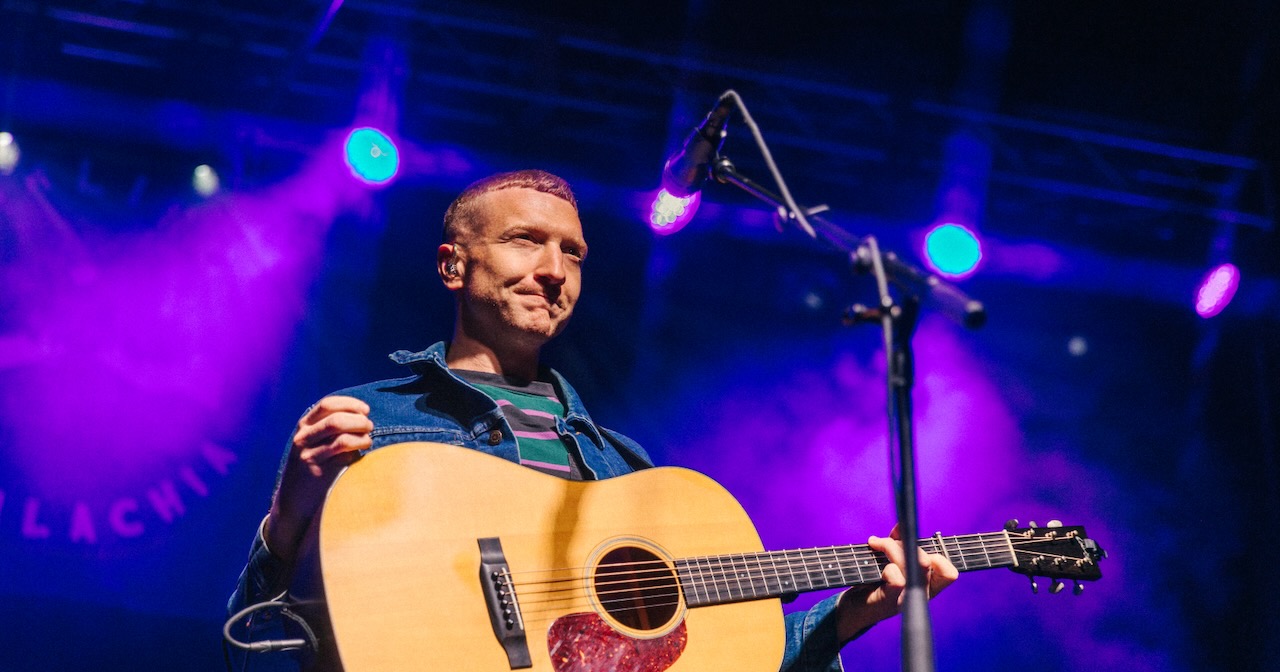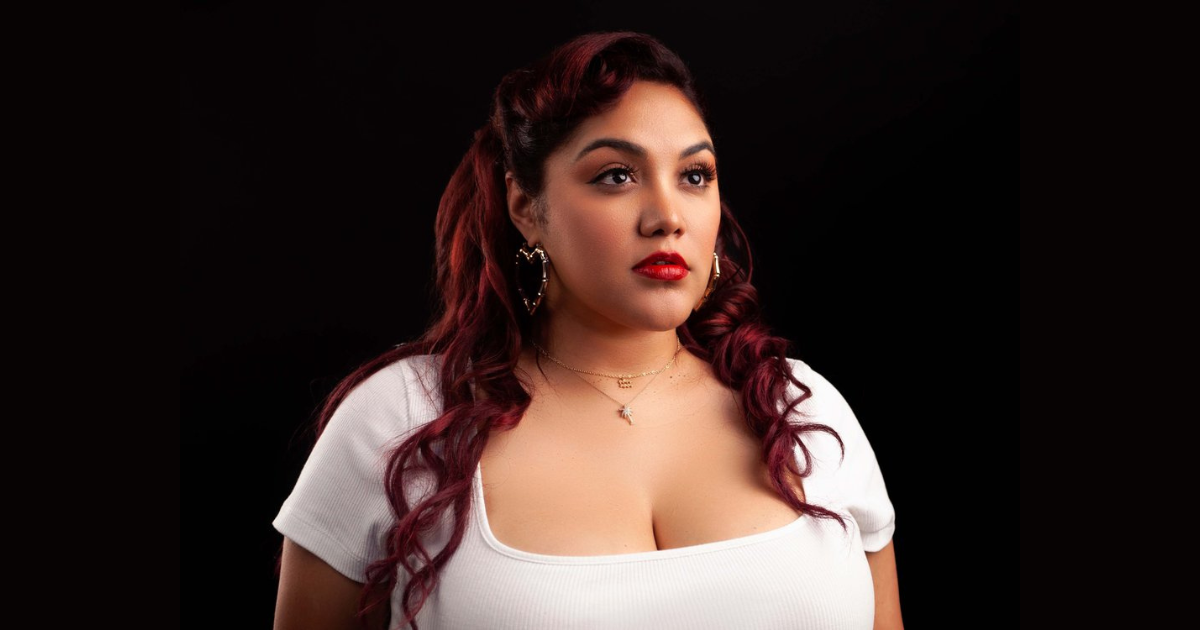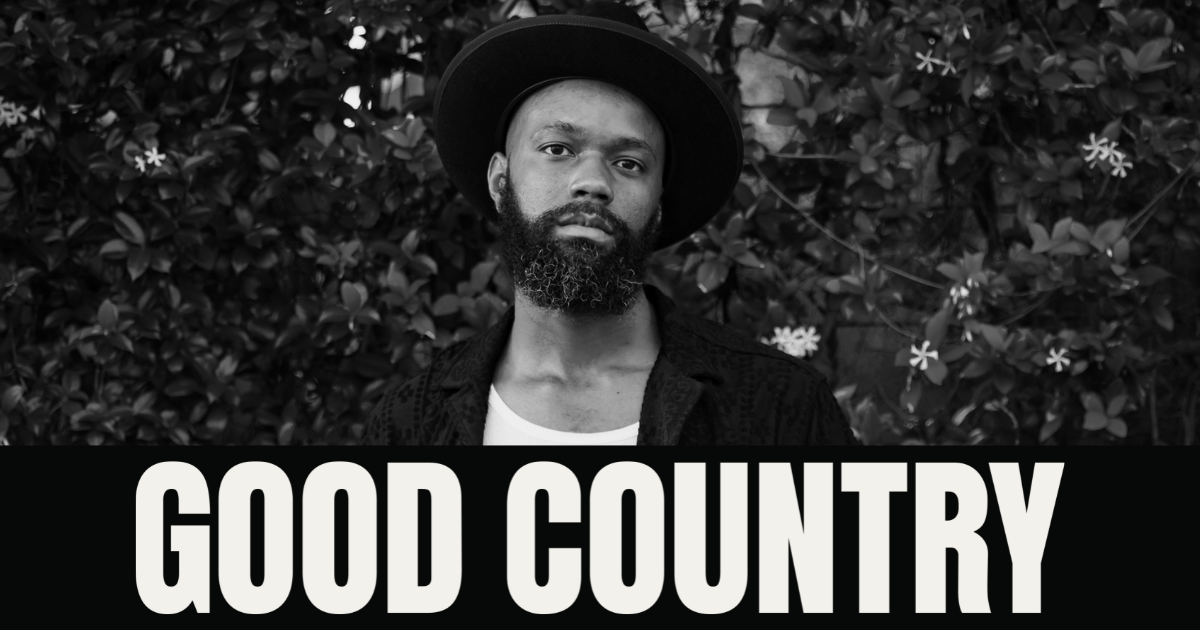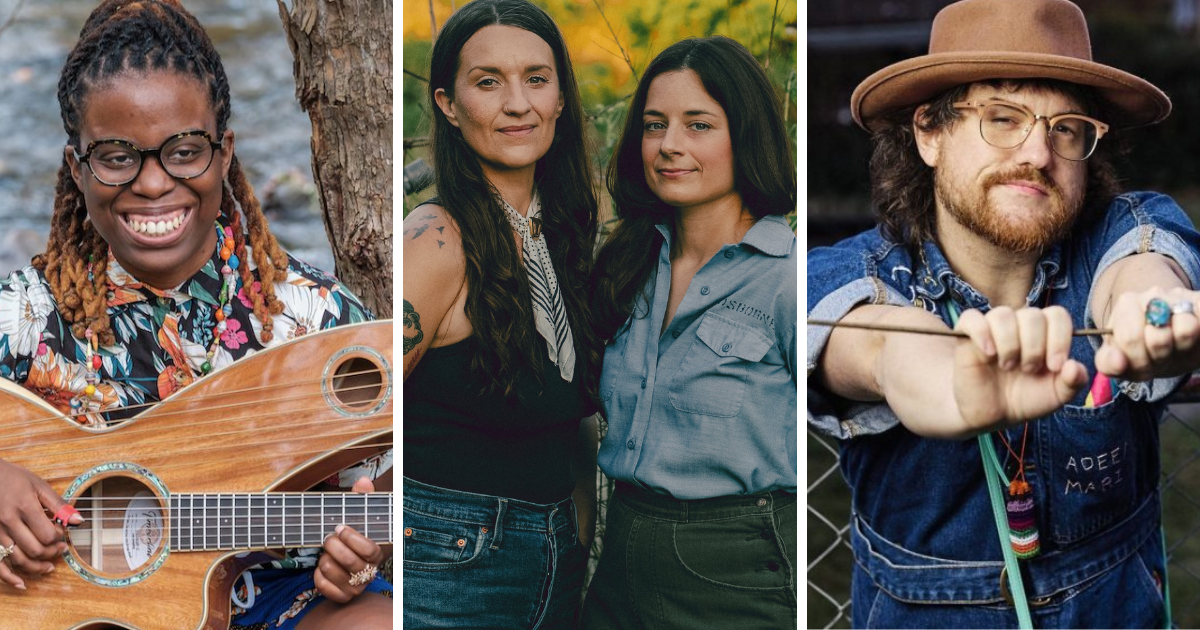Basic Folk: Jenny Owen Youngs
Podcaster, Number One hit songwriter, human and dog mother, gay icon Jenny Owen Youngs returns with her first full length album since 2012! In the last decade plus, Jenny has experienced a wild ride of changes like divorce, extreme grief, moving across the country, remarrying, etc. Her main project — while not writing, recording and touring — is hosting podcasts like the very successful Buffering The Vampire Slayer alongside her ex-wife, Kristin Russo (a Buffy The Vampire Slayer rewatch pod, which is now an X-Files rewatch show called The Ex-Files). She also has songwriting credits for Panic! At the Disco, Pitbull, Ingrid Michaelson and Brett Dennen, thanks to her deal with Dan Wilson (Semisonic and epic co-writer) and his publishing company.
LISTEN: APPLE • SPOTIFY • STITCHER • AMAZON • MP3
JOY’s new album Avalanche covers a lot of hard topics (see earlier: divorce, grief, moving, remarrying) and was produced by angel human Josh Kaufman (Taylor Swift, The National, The Hold Steady, Josh Ritter, and so on). Jenny has always been an artist who is not afraid to show her whole self: good and the bad. Case in point: She described the inspiration for her very first breakthrough song, “Fuck Was I,” as “horrible, horrible, horrible decision making,” adding it was “just your classic love gone wrong hell.” Never one to back down from a fight, Jenny’s approaching these songs with honesty, bravery and her biting sense of humor. It’s cliché to say that talking to Jenny is a JOY, but it’s a cliché for a reason. Thanks Jenny!
Photo Credit: Lisa Czech
LISTEN: Jesse Smathers, “Sing Darling Sing”
Artist: Jesse Smathers
Hometown: Floyd, Virginia
Song: “Sing Darling Sing”
Release Date: September 22, 2023
In Their Words: “I believe that simple melodies and simple stories relate across generations and all walks of life. That’s the true beauty of string music: its relatability. This song was composed with that aspiration.
“Being raised in piedmont North Carolina, family roots in Western Carolina, and now living in Southwest Virginia, string music always surrounded me and the tunes that always struck a chord were the fun melodic tunes, and happy songs. ‘Sing Darling Sing’ is just that, a happy tune with a loving story.
“I am so very proud of this recording, musically and personally, for it draws inspiration from my own marriage as well as relationship examples I see set by older generations. I hope the music and imagery takes the listener to a simpler and scenic time when life didn’t move as fast, and communication wasn’t at our fingertips. However, the young man in the tale is chomping at the bit to marry the girl of his dreams, the day can’t come quick enough and nothing’s gonna stop him!” – Jesse Smathers
Nick Goad – Mandolin/ Harmony Vocal
Corbin Hayslett – Banjo
Hunter Berry – Fiddle
Joe Hannabach – Bass
Photo Credit: Laci Mack
LISTEN: Lillian Leadbetter, “Doesn’t Hurt”
Artist: Lillian Leadbetter
Hometown: Lincoln, Vermont
Song: “Doesn’t Hurt”
Album: State of Romance
Release Date: September 22, 2023 (single); October 13, 2023 (album)
In Their Words: “‘Doesn’t Hurt’ exists in a world of suspended disbelief. Snowed into my childhood home in early February with just myself and a teething puppy, I lay in bed, reminiscing. As my brain drifted from my cold bed in the hills of snowy Vermont, I recalled warmer days, warmer arms, love that had slipped through my fingers, love I knew wouldn’t last. Those vignettes kept me warm, moments and people who told white lies to preserve a state of romance. ‘Doesn’t Hurt’ is an internal song, sung to honor all the moments I bit my tongue instead of admitting the end, choosing instead to revel in the impermanence of love one last time.” – Lillian Leadbetter
See the Winners of the 2023 Americana Honors & Awards
The Americana Music Association announced the winners of its 22nd annual Americana Honors & Awards this evening (September 20) at a star-studded show at the historic Ryman Auditorium during the week-long AmericanaFest conference and festival in Nashville. Performers at the marquee event – which felt, as it usually does, more like a concert interspersed with awards presentations than vice versa – included Bonnie Raitt, Bettye LaVette, S.G. Goodman, Noah Kahan, The Avett Brothers, Adeem the Artist, William Prince and many more with Buddy Miller once again as music director for the Americana All-Star Band.
The evening’s presentations also spotlit this year’s Lifetime, Trailblazer, and Legacy Award Honorees: The Avett Brothers, George Fontaine Sr., Bettye LaVette, Patty Griffin and Nickel Creek. Allison Russell, nominated in two categories, was bestowed the Spirit of Americana / Free Speech in Music Award by the infamous Tennessee Three, Tennessee state representatives Gloria Johnson, Justin Jones and Justin Pearson, whose expulsion by the Tennessee General Assembly after protesting in support of common sense gun legislation earlier this year made international headlines.
A full list of categories, nominees and winners at the Americana Music Association’s 22nd annual Americana Honors & Awards is below, winners in bold. Congratulations to all of the honorees and awardees!
ARTIST OF THE YEAR:
Charley Crockett
Sierra Ferrell
Margo Price
Allison Russell
Billy Strings
ALBUM OF THE YEAR:
Big Time, Angel Olsen; Produced by Angel Olsen and Jonathan Wilson
Can I Take My Hounds To Heaven?, Tyler Childers; Produced by Tyler Childers
El Bueno y el Malo, Hermanos Gutiérrez; Produced by Dan Auerbach
The Man from Waco, Charley Crockett; Produced by Bruce Robison
Strays, Margo Price; Produced by Margo Price and Jonathan Wilson
SONG OF THE YEAR:
“Change of Heart,” Margo Price; Written by Jeremy Ivey, Margo Price
“I’m Just a Clown,” Charley Crockett; Written by Charley Crockett
“Just Like That,” Bonnie Raitt; Written by Bonnie Raitt
“Something in the Orange,” Zach Bryan; Written by Zach Bryan
“You’re Not Alone,” Allison Russell featuring Brandi Carlile; Written by Allison Russell
DUO/GROUP OF THE YEAR:
49 Winchester
Caamp
Nickel Creek
Plains
The War and Treaty
EMERGING ACT OF THE YEAR:
Adeem the Artist
S.G. Goodman
William Prince
Thee Sacred Souls
Sunny War
INSTRUMENTALIST OF THE YEAR:
Isa Burke
Allison de Groot
Jeff Picker
SistaStrings – Chauntee and Monique Ross
Kyle Tuttle
Jack Emerson Lifetime Achievement Award
George Fontaine, Sr.
Legacy of Americana Award (Presented in partnership with the National Museum of African American Music)
Bettye LaVette
Lifetime Achievement
Patty Griffin
The Avett Brothers
Spirit of Americana / Free Speech in Music Award
Allison Russell
Trailblazer Award
Nickel Creek
Photo Credit: Bettye LaVette by Danny Clinch; Allison Russell by Laura E Partain; Billy Strings by Jesse Faatz; SistaStrings by Samer Ghani.
This Music Festival’s Goal Is Healing Appalachia, From the Inside Out (Part 1 of 2)
This weekend, September 21, 22, and 23, at the West Virginia State Fairgrounds in Lewisburg, West Virginia, ascendant, down home country star Tyler Childers and his cohort will gather for an event begun in 2018 called Healing Appalachia. The benefit festival, put on by West Virginia based non-profit Hope in the Hills, will include performances by some of the biggest and buzziest names in American roots music: Jason Isbell & the 400 Unit, Trey Anastasio Band, Marcus King, Umphrey’s McGee, Amythyst Kiah and many more.
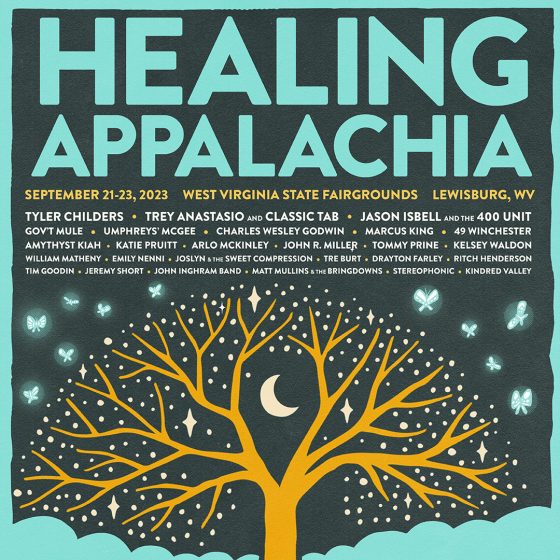
Healing Appalachia is just one of many such community-led, collective efforts born from within the region in recent years that is working towards effecting positive change while offering local, ground-up solutions to big, systemic problems. Their social media and website put it elegantly and succinctly: Their vision is a prosperous Appalachia, free from addiction. The opioid crisis has hit Appalachia, especially West Virginia and Childers’ home state of Kentucky, incredibly hard. When 26 people overdosed on one day in Huntington, West Virginia, in 2016, the mission for Hope in the Hills and Healing Appalachia was born.
At the time, Childers and his hardscrabble team were still climbing the music-industry ladder, building connections and community that would eventually grow and blossom into the multi-day event Healing Appalachia has become today. Childers’ friend and manager, Ian Thornton – who founded WhizzbangBAM, the booking and management company that represents Childers – together with festival program director Charlie Hatcher, Hope in the Hills board president Dave Lavender, and others took that tragic day in Huntington and turned it into an accretion point, around which they gathered and took action. Now, the festival has a local, annual economic impact approaching $3 million while raising thousands of dollars to be distributed to local, on-the-ground organizations and non-profits that specialize in addiction programs, recovery, support and healing for this long-oppressed region of the world.
We spoke to Ian Thornton and Dave Lavender for a two-part interview preview of Healing Appalachia, that dives into the work of Hope in the Hills and explores this grassroots music event’s community-first mission, that hopes to heal these music-steeped, underestimated communities in Appalachia from the inside out. Read our conversation with Ian Thornton below, read our conversation with Dave Lavender here.
Unable to attend the festival this weekend? You can donate to support the cause here.
Could you tell me a little bit about the background, the impetus, or the inspiration when you all were putting your heads together to make an event called Healing Appalachia. What was that like?
Ian Thornton: I’m very close friends with a fellow named Charlie Hatcher, who’s actually the festival producer for the event. The idea came to him first – you know, he tells the story better than I do – but he was on a fishing trip and got a call that yet another one of his friends had passed away from an opioid overdose. You know, we’ve all lost countless friends who we grew up with, went to school with, and I guess you’d say this one was the straw that broke the camel’s back. Charlie just kind of wanted to do something about it. He reached out to me and we got our heads working.
We’re not a recovery organization ourselves, right? But what we’re good at is the music side of things, producing events, working with musicians, playing music, inspiring people, bringing people together. That’s kind of how it was born. I talked to Charlie, who is friends with Tyler [Childers], too, and obviously this is something Tyler is very passionate about.
Tyler is also from Appalachia and he’s lost friends and family members, himself. The idea kind of spawned from thinking, “What if we do essentially a Farm Aid type of event?” The thought process was to have Tyler be the face of it and have all the efforts go towards recovery and the battle against the opioid epidemic here in Appalachia.
What I love about a cause like this is that the music itself is generative and restorative, and isn’t just a tool to generate interest or awareness. How do music and the arts play a role in a mission like this, in healing Appalachia, where the music can do the work as well as spotlighting the work? Do you agree or disagree?
IT: I certainly agree, and I think music is one of those things that ties everyone together, right? On a base level.
This one I think is in particular, it’s special because substance use and music are pretty closely tied together. A lot of musicians suffer from [substance abuse], and it’s part of the lifestyle, right? It’s part of what you see as “the rock and roll lifestyle” or whatever you call it. They kind of go hand in hand. We’re all more aware of it now, too, and we all know folks who have taken things to the extreme, then they’ve had to kind of pull back and get sober after feeling like they lost their way. We wanna show that sobriety and rock and roll – or whatever you want to call it – can live together harmoniously, just as easy as the party side of things.
A very good friend of mine, who’s no longer with us, Tom Morgan, he battled with sobriety for a long time. He was one of the guys that taught me my first chords on a guitar, right? And it got to the point, for him, where he couldn’t even go to shows locally, because they’re always at bars, right? Venues and bars are so closely associated that it can be difficult for someone who is in recovery.
I think that’s why the music side of Healing Appalachia, using music to bring awareness to this epidemic, really goes hand-in-hand. Even some of our performers – Trey Anastasio is performing this year and I think he’s over 15 years sober, now. Obviously with Phish, which is, you know, the jam band, you would assume, drug culture and everything else is associated with that. But, Trey’s only gotten greater in what he’s done with his musicianship. And, you know, Tyler even comments too that his artistry has improved and he’s been able to focus more on it since becoming sober and quitting drinking.
What is the importance of community and mutual aid to this mission, and how important is it that you all are not just people coming in from the outside, that you all have a stake in this – regionally and locally. Do you think that building community as you’re doing this is just as important as doing the work as well?
IT: Yeah. And, you know, to be honest, I think that’s where it has to start. You can look at things on these big levels and you can just get overcome or overwhelmed with how large the changes you’re trying to make are. At that point you get discouraged and you’re not going to do it.
Living inside Appalachia, we have heard all of the stereotypes. That we’re, you know, “Shoeless, toothless, drug-addled, fat…” We’ve dealt with these things and we’ve dealt with the oppression of the coal industry, of big money, of big pharma. All of this built on the backs of Appalachians.
I’ve always been someone who believes that you have to start locally. You have to have something that’s attainable. Something you can put your hands on and something that’s meaningful – it’s more meaningful to us because we’re in the fucking thick of it, right? I mean, Huntington, West Virginia, was almost the nucleus of the opioid crisis, and that’s the city I was born and raised in. We watched [everything] happen, the day there were 26 overdoses in one day due to a bad batch of heroin coming in. If you create something locally and have local people that are invested, what that does is it will not only grow the mission in and of itself, to help people become more aware. But one of my ultimate goals was always for someone else to see what we’re doing and it inspires them to do something in their region. Sometimes that’s all people need. They just need to be pushed over the hump to get the inspiration.
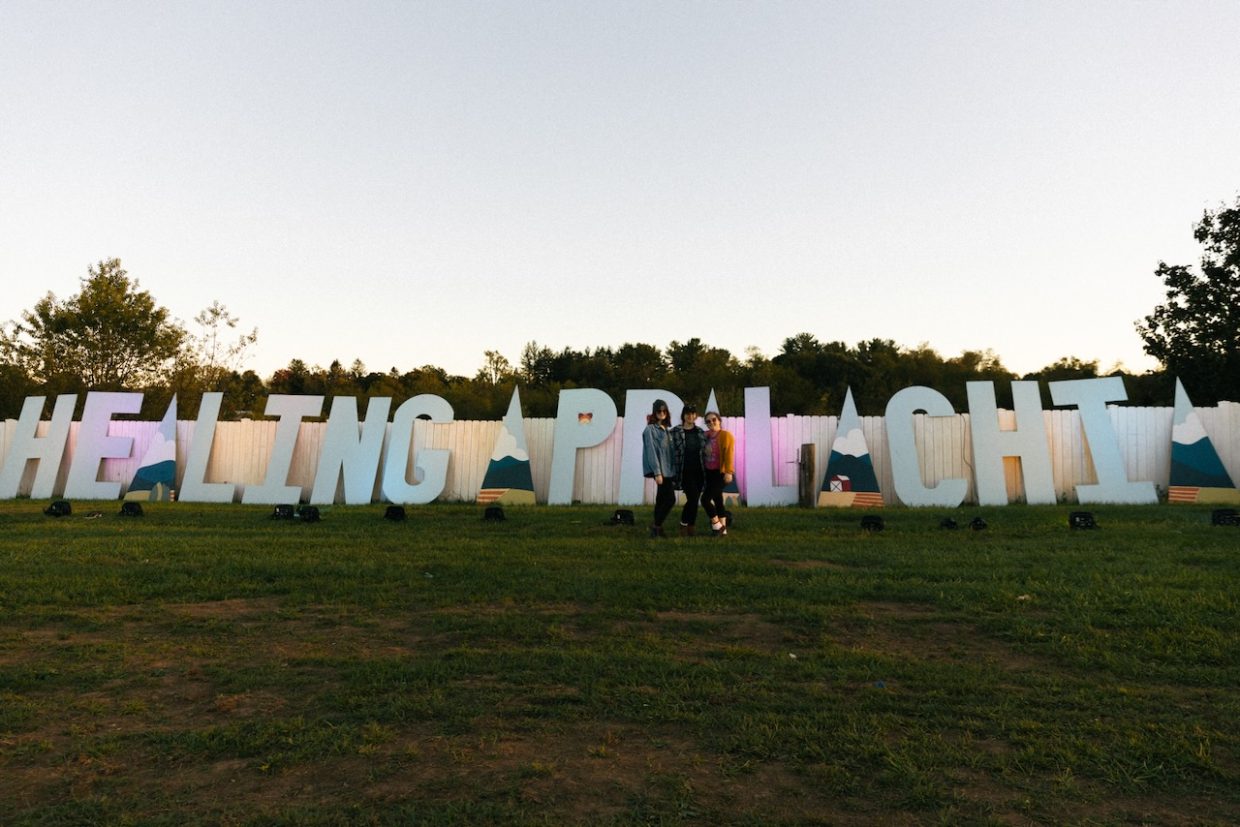
Do you have an idea of the scale of the economic impact of the festival, not only for your mission, but also for the area in general?
Yeah, so I’m going to refer to my fact sheet here. [Laughs] We’ve estimated $2.4 million in local economy spending in southern West Virginia and the Lewisburg area. That’s like hotels, gas stations, shops, restaurants, everything. On top of that, we donate money directly, too, and we pull a lot of volunteers from the region.
Like, the local high school basketball team will come and clean up trash. We’ve given more than $50,000 to local youth organizations in Greenbrier County alone. I think we had over 30 states and 6 countries represented last year in concertgoers.
It does make the point for you: You can have all of the apparatus and all the infrastructure, but if you don’t have the community, how do you take those numbers and turn them into something that means something to the people who are on the ground there in West Virginia? And involving them, too, right? Everything from the car lots to catering to cooking burgers out back.
To date, we have donated over $400,000 to recovery wellness organizations. That goes to over two dozen different organizations. We’re not a recovery organization ourselves, right? We’re facilitators. What we’re trying to do is give people that want to do that side of the work the means to do it. We don’t have this crazy application process for grantees. You don’t have to have a degree in grant writing to come to us. Tell us what it is you’re doing, tell us what you need. It could be needle exchange programs or money going towards Jacob’s Ladder, which is an organization for children that were born addicted. We try to hit all sides of it that we can, relying on donations as well as funds raised from the concert itself.
What bands, acts, or artists are you particularly excited about this year when you look at the lineup? It’s a pretty stout lineup!
To be quite honest, I’m pretty excited about the whole thing! When this started it was a small, one day event. I think we only had around 7,500 people show up to it. Last year, we had 16,000+ plus.
I’m personally pretty excited about Trey Anastasio and Classic TAB. I’m such a Phish fan, obviously, and can’t believe we’re having Trey play right before Tyler. I’m just really stoked about that! Also excited for Gov’t Mule, Isbell, 49 Winchester, who are cruising right now. And then, you know, keeping some local folks involved, too, your Kelsey Waldon, Charles Wesley Godwin. And Mr. Tommy Prime, who is fantastic and obviously, his father was an inspiration to a lot of these folks.
It’s really special to see some of these folks actually coming to us now. At first, you know how it is, you have to go beg people, “Hey… I’m doing this charity thing… You want to go play for free? We’ll get you in the local paper…” The “exposure” gigs, right? And now the pitch writes itself! The work that’s been done speaks for itself and people get behind it.
It goes back to the tie with substance abuse and music. You know, they go hand in hand. … I drink, right? It’s nothing that I’m personally [abusing], thankfully. But substance abuse is a thing that can get out of hand in the music industry.
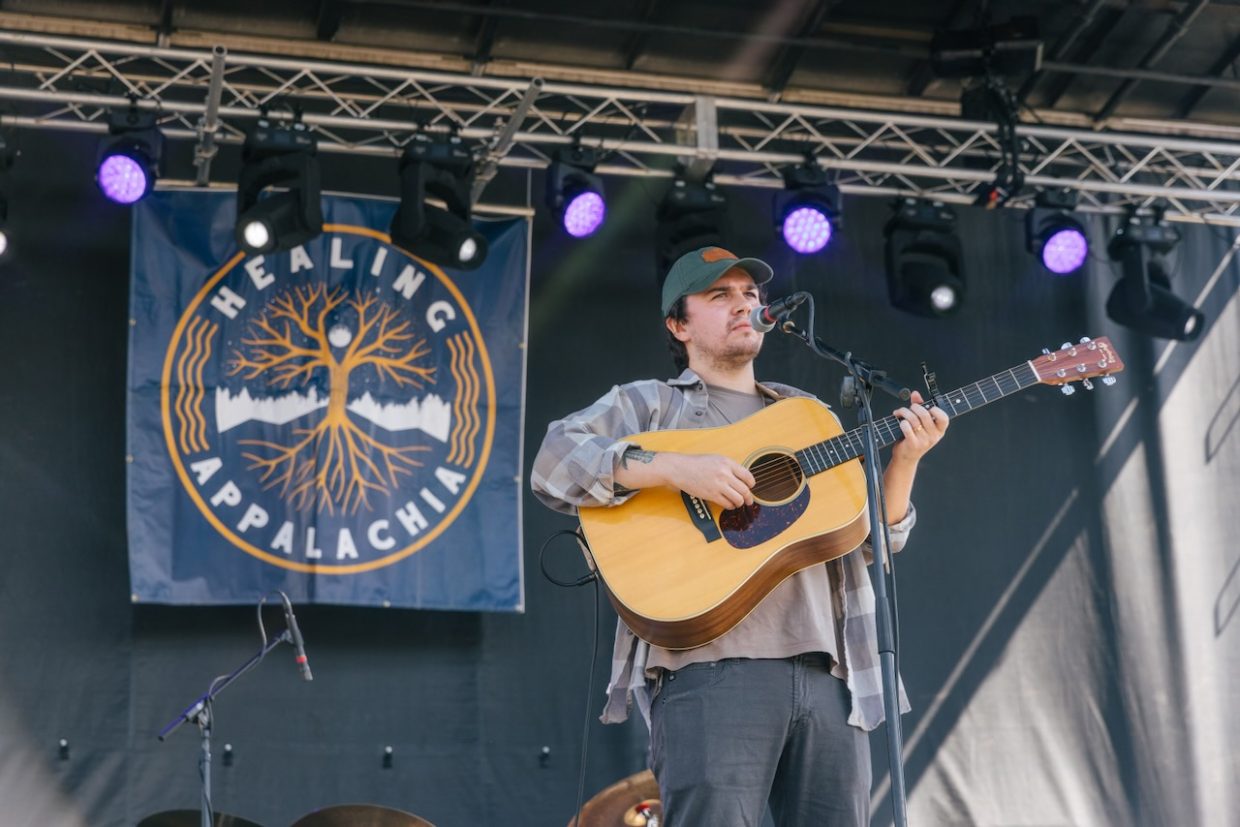
Let’s close with two questions and they feel very big, but don’t be alarmed: What does a healed Appalachia look like to you, personally? And what’s one thing that you’d like people to know about Appalachia?
IT: I mean in healing Appalachia, we just have to make it so that folks don’t feel trapped or alone. And to let them know, if it’s a battle they’re going up against, they’re not the first one to do it, even if it’s not an easy battle. It’s not going to be a mound to climb, it’s a goddamn mountain, right? So, having the availability and the resources in place so that when someone is ready to take this on, whether it be the first time or the 10th time, that they don’t feel ashamed or guilty about it. That they feel loved and like a human being.
Question 2, I think wherever you come from, rural, urban, or whatever, it’s the stigmas, right? I want people to know how those stigmas make an impact. The stereotypes of, “They’re fat, uneducated. They live in hills and don’t wear shoes, right?” The whole reason I do what I do, with Whizzbang in particular, I only work with acts from our region. And I do that specifically. When I started getting into all this, even before Tyler, just seeing the music that’s created here. We are not just one thing, right? Nobody is just one thing. You cannot judge a whole people by the bit of the iceberg that floats on top.
The stuff on top that’s the most visual, but you can’t judge a whole people by that. Appalachia is the most beautiful place in the country. Granted, I’m biased. I grew up there.
(Editor’s Note: Read part two, our conversation with Hope in the Hills board president Dave Lavender, here.)
Photos by Hunter Way / Impact Media
This Music Festival’s Goal Is Healing Appalachia, From the Inside Out (Part 2 of 2)
This weekend, September 21, 22, and 23, at the West Virginia State Fairgrounds in Lewisburg, West Virginia, ascendant, down home country star Tyler Childers and his cohort will gather for an event begun in 2018 called Healing Appalachia. The benefit festival, put on by West Virginia based non-profit Hope in the Hills, will include performances by some of the biggest and buzziest names in American roots music: Jason Isbell & the 400 Unit, Trey Anastasio Band, Marcus King, Umphrey’s McGee, Amythyst Kiah and many more.

Healing Appalachia is just one of many such community-led, collective efforts born from within the region in recent years that is working towards effecting positive change while offering local, ground-up solutions to big, systemic problems. Their social media and website put it elegantly and succinctly: Their vision is a prosperous Appalachia, free from addiction. The opioid crisis has hit Appalachia, especially West Virginia and Childers’ home state of Kentucky, incredibly hard. When 26 people overdosed on one day in Huntington, West Virginia, in 2016, the mission for Hope in the Hills and Healing Appalachia was born.
At the time, Childers and his hardscrabble team were still climbing the music industry ladder, building connections and community that would eventually grow and blossom into the multi-day event Healing Appalachia has become today. Childers’ friend and manager, Ian Thornton – who founded WhizzbangBAM, the booking and management company that represents Childers – together with festival program director Charlie Hatcher, Hope in the Hills board president Dave Lavender, and others took that tragic day in Huntington and turned it into an accretion point, around which they gathered and took action. Now, the festival has a local, annual economic impact approaching $3 million while raising thousands of dollars to be distributed to local, on-the-ground organizations and non-profits that specialize in addiction programs, recovery, support, and healing for this long-oppressed region of the world.
We spoke to Ian Thornton and Dave Lavender for a two-part interview preview of Healing Appalachia, that dives into the work of Hope in the Hills and explores this grassroots music event’s community-first mission, that hopes to heal these music-steeped, underestimated communities in Appalachia from the inside out. Read our conversation with Dave Lavender below, read our conversation with Ian Thornton here.
Unable to attend the festival this weekend? You can donate to support the cause here.
Can you talk a bit about the impetus or inspirations for Healing Appalachia?
Dave Lavender: Hope in the Hills, our non-profit, was started in 2017, and then the first Healing Appalachia was held in 2018 as it took a minute for Ian Thornton, Keebie Gilkerson and Charlie Hatcher, and the other OG board members to get the all-volunteer non-profit going.
The birth of the group is rooted in the events of 2016 – two historic things happened that year. In June 2016, central West Virginia got record flooding that killed 23 people. Shortly thereafter, the Huntington music scene, which was really getting built-up in a mighty way with touring bands, came together and raised more money in one night at the V Club than some big corporate fundraisers had in a couple weeks. I think all of us there saw a ragtag bunch of musicians could really make a difference banding together. Interestingly, Tyler Childers and the Food Stamps’ first New York City trip was that August as well, for a West Virginia flood fundraiser organized by our friend, Michael Cerveris, the two-time Tony winner from Huntington.
As that was happening in August 2016, Huntington, West Virginia, hit the world’s headline news with 26 overdose calls within four hours. It might have been a shock to the world, but we were all living around it in West Virginia so Ian, Tyler and Charlie Hatcher, Healing’s co-founder and show producer, knew how bad it was, and knew it was time to project the “bat signal” in the air, and unite their super friends in music to gather again and put on a show to help out the boots-on-the-ground folks overwhelmed and trying to assist in this opioid crisis.
One thing that struck me about the organization and the event is how y’all are from the region and building support systems, resources and pathways for folks from within the region – can you talk about the importance of mutual aid and community to the org and also the event?
DL: Everyone in the world knows the West Virginia theme song is “Country Roads,” but I would say the West Virginia and Appalachian motto is a song from Slab Fork, West Virginia-native Bill Withers. He wrote “Lean on Me” about being raised in the coal camp where you rely on your neighbors. Being from Appalachia, we know help is not on the way and that we are also better and stronger together.
For Hope in the Hills as a granting organization, we try to stay acutely aware of the ever-changing recovery ecosystem and fill the gaps where we can. For instance, I think the general public thinks of the opioid crisis as, “That’s the guy with the backpack at the recovery house.” Yes, true. But, the opioid crisis has created deep and wide fall-out – from historic numbers of kids in foster care (addressed by Barbara Kingsolver in her latest Pulitzer-Prize winning book, Demon Copperhead), to an overloaded prison system with non-violent drug offenders to many governments not wanting to fund harm reduction – even though they know through countless studies that it saves lives. Without harm reduction, communities are likely to get horrific spikes in hepatitis and HIV.
We try to put what funds we have into the gaps to provide a little help, but to also let folks know through our socials about some of these amazing programs happening across the region with things like camps for kids in trauma, and innovative recovery-work programs.
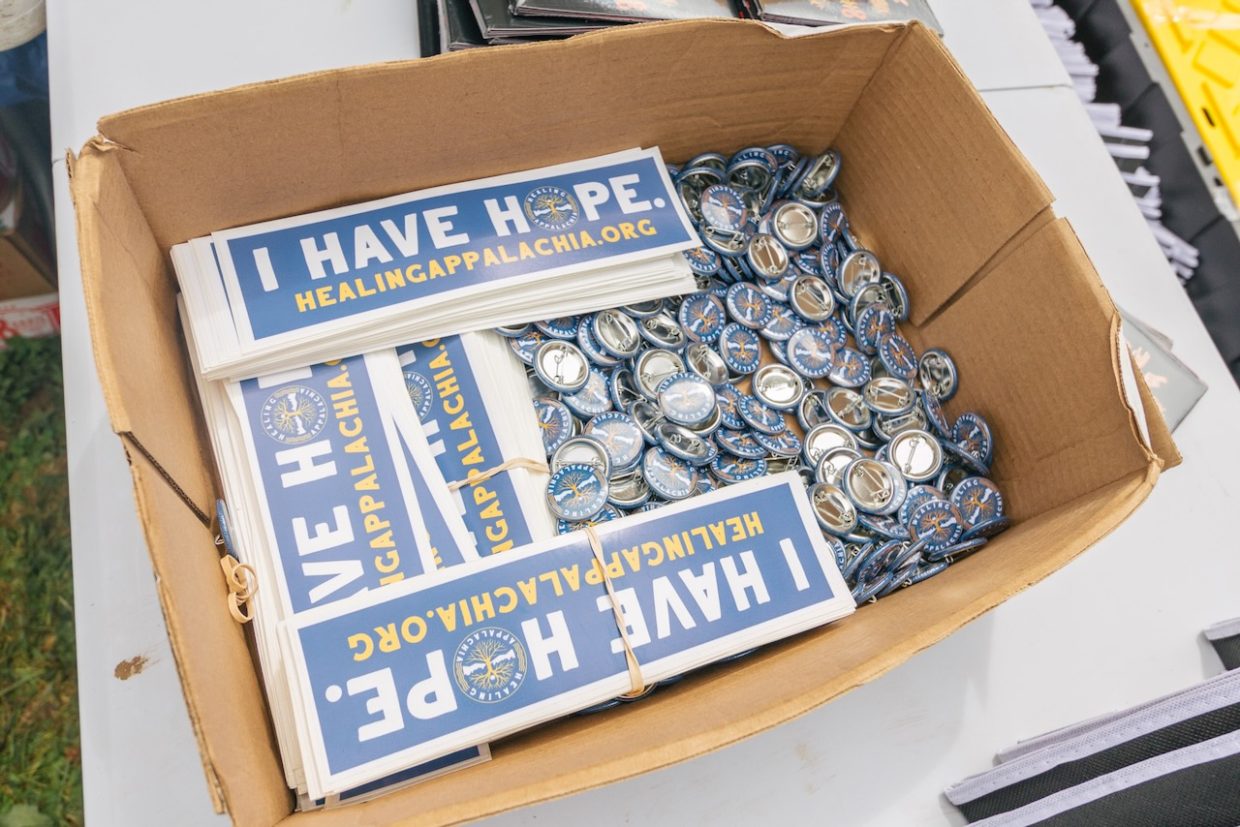
As for the event, I think that “Lean on Me” spirit is really palpable everywhere you look at Healing Appalachia. We’ve modeled ourselves in the spirit of using music to create social change, after Farm Aid. Healing is shining a light on a crisis that many choose to ignore. We’re highlighting amazing people who help daily to deal with that crisis. We’re inspiring attendees through the music, testimonials from the stage, and the dozens of service providers there, to go forth and be the change when they get home from the concert, wherever home is. And that home is widespread – last year we had folks from 38 states and 3 countries.
The message I hope the casual music fan receives in their heart and acts upon from Healing Appalachia is that the opioid crisis is not “us and them,” it’s just us. Last year, we lost more than 109,000 in the United States to overdose. Music is a powerful vehicle for conveying with love that message of empathy. Even if you haven’t lost someone personally to overdose, we lost Prince, Tom Petty, Whitney Houston, and a long list of beloved musicians to opioid overdoses. So I hope that at the very least the casual music fan who comes just to see some amazing bands, goes back home with an improved empathy muscle that allows them to lay down the proverbial stones and jokes and judgment they were set to throw at someone suffering from Substance Use Disorder and in active addiction.
For the recovery service groups coming to Healing – and this year we will have more than 40 from 13 states – I want them to know, that as Mavis Staples sings, “You’re Not Alone.”
That they hopefully will meet folks from organizations like them who are in the trenches everyday, doing the hard, tedious and often-unsung work of helping someone along their journey, and that they may pick up some best practices, some group to ally with, and some friends from across Appalachia who know their struggles and can be an encourager.
Do you have a favorite anecdote or story about a partner organization or individual or program that was particularly impactful, or a perfect representation of why you do what you do?
DL: At Healing Appalachia last year, Kenney Matthews, the ONEBox coordinator for Drug Intervention Institute was one of our main speakers. I’m typically running around taking care of a lot of back-end stuff at the fest, but I was out there with him before he went out. He was really nervous, but I hugged him and told him he was going to crush it. He did, and threw down this beautiful line about “the opposite of addiction is connection.” It really was electric, so real and so true. I was talking with my wife, Toril, after Healing and Kenney – who spent 15 years in prison – told her about running into a prison guard who knew him on the inside at the festival. The guard tells Kenney he never did think he would change and that he was really proud of him, and they both had a moment of healing at Healing. We’ve had LOTS of moments in doing this work and the fest is full of them, but I loved hearing both sides of Kenney’s story and its impact to spread hope.
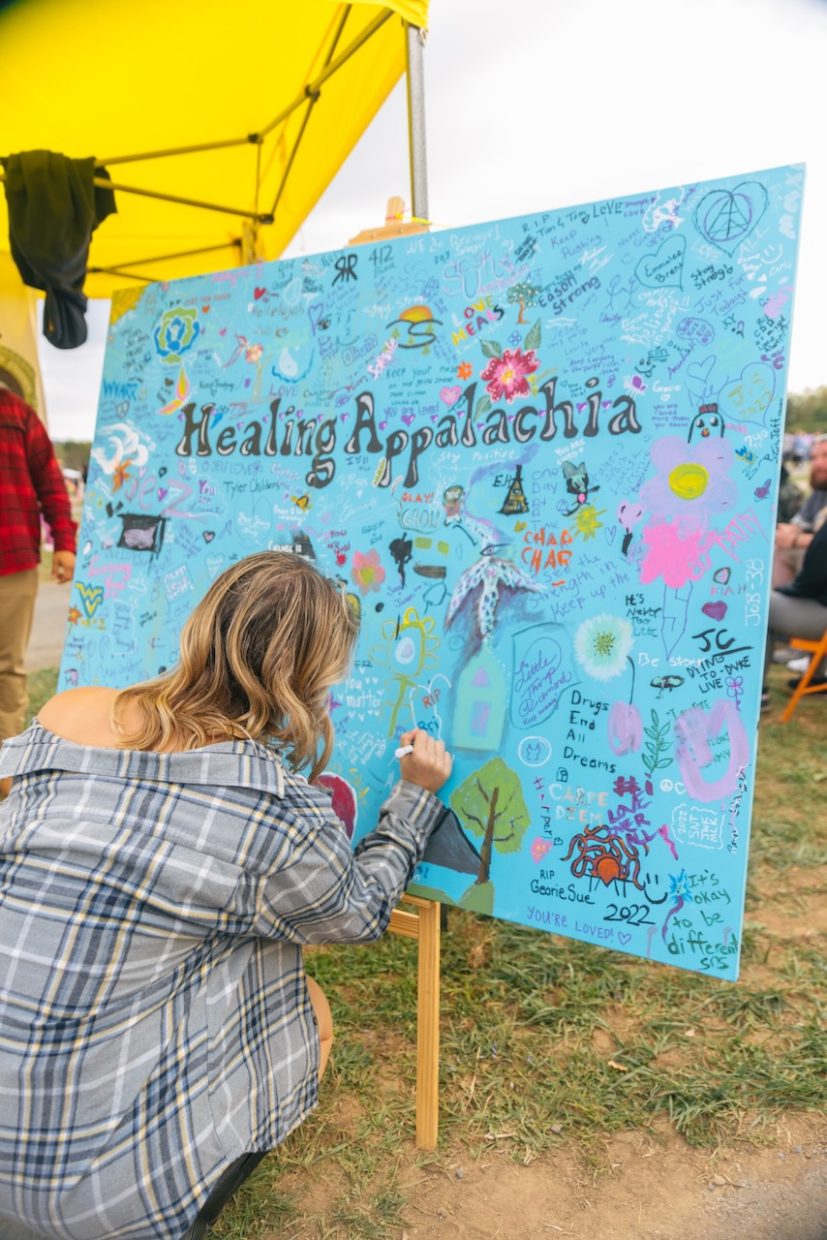
How do you – either individually or as a group – see music and the arts (especially arts with regional ties, like folk and country music and folk arts) as part of these regional solutions to regional problems?
DL: In Appalachia, storytelling and music are so grapevine-wrapped in who we are, how we think, what we do, so connecting and teaming up with those artists who are using their music with intent and purpose is what we want to do.
As a group, Hope in the Hills, we’ve been building out a Music Is Healing program that has active music therapy programs in East Tennessee with Cecilia Wright (who plays cello with Senora May and who has her own band), and in Eastern Kentucky at ARC and West Virginia with Huntington-based music therapist Margaret Moore (a multi-instrumentalist folk artist who also teaches the Wernick Method bluegrass jams). She also happens to be an expert in forward facing trauma.
The inspiring thing is we are bringing folks like Cecilia and Margaret – with that intersectionality of professional musicianship and therapy – to team up with other regional artists of all genres and do sessions not only at drop-in centers and recovery houses but also at regular music festivals to spread the fact that music is therapy and can be tapped into to get on a higher spiritual plateau.
At Addiction Recovery Care (ARC) Centers in Eastern Kentucky, Margaret gets to work with world-class bluegrass artists Don and John Rigsby, long-time nationally-touring bluegrass artists who are sharing their music to inspire folks on their recovery journey. Through ARC, Don’s built out a studio in Lawrence County, Kentucky, where he is teaching some of the ARC guys the recording industry. Along those career pathway lines, at Recovery Points in West Virginia, Hope in the Hills (Dave Johnson and Charlie Hatcher) have been working with folks there who have in years past helped build Healing’s stages and do stage-hand and festival security work, get paid for additional festival work as a career pathway build-out as an employment option.
Hope in the Hills is also helping fund the WVU School of Medicine’s music therapy program at the opioid unit. We’re also contributing to the inspiring Troublesome Creek Stringed Instruments program with Doug Naselrod in Eastern Kentucky, where Doug is doing music therapy while also carving out recovery-to-work opportunities for his world-class luthier shop making traditional music instruments.
Specifically for Healing, we’ve leveraged the fact that we have a large audience to help train them on using Naloxone. Last year (the first year back after two years off because of COVID), we teamed up with the WV Drug Intervention Institute to have a Naloxone training tent that really broke down the stigmas of Naloxone with a festival spirit. Our buddy Joe Murphy got Gibson Gives involved and we loaded up swag bags with Tyler CDs, water bottles from Healing, and then additional swag from other artists.
Are there particular bands/artists/acts on the lineup this year you’re especially excited about?
DL: Gotta give crazy props to Charlie Hatcher and Ian Thornton for pulling aces and connections to reel in an insanely good lineup that includes 24 national acts. This is only our fourth Healing Appalachia, so to have Marcus King, Umphrey’s McGee, and Warren Haynes and Gov’t Mule back-to-back-to-back – would be the envy of jam band festival in the world! Truly a guitar lover’s feast on Friday. And opening act Joslyn and the Sweet Compression is one of my favorite R&B bands out there.
I’m really knocked out that 49 Winchester (who’s up for Americana Group of the Year) are throwing down for two nights in a row hosting our Late Night Jam with some killer bands and songwriters on those bills.
As far as really impactful musicians and people in that recovery space, we feel beyond blessed to have Jason Isbell & The 400 Unit on Thursday as the headliner and then Trey Anastasio and Classic TAB on Saturday headlining with festival co-founder Tyler Childers and The Food Stamps. Isbell, who was on a recovery panel at SXSW 2022 with our good friend Jan Rader, has put in the hard work to become increasingly more comfortable and sure-footed in that space and has Weather Vanes fresh out — the album to prove it. That’s been inspiring to watch.
We’re over the moon to have Trey (who is 15 years in recovery) with us and bringing Classic TAB, after a full summer of Phish shows, and with the great news that his 40-bed recovery center Divided Sky Foundation is on the way to opening in Ludlow, Vermont.
As a West Virginian, I’m super stoked to get Charles Wesley Godwin back on home turf to do something so real. I think he could grow into the biggest thing out of West Virginia since Brad Paisley. His new 19-song album, “Family Ties,” drops the day after he plays Healing on Thursday.
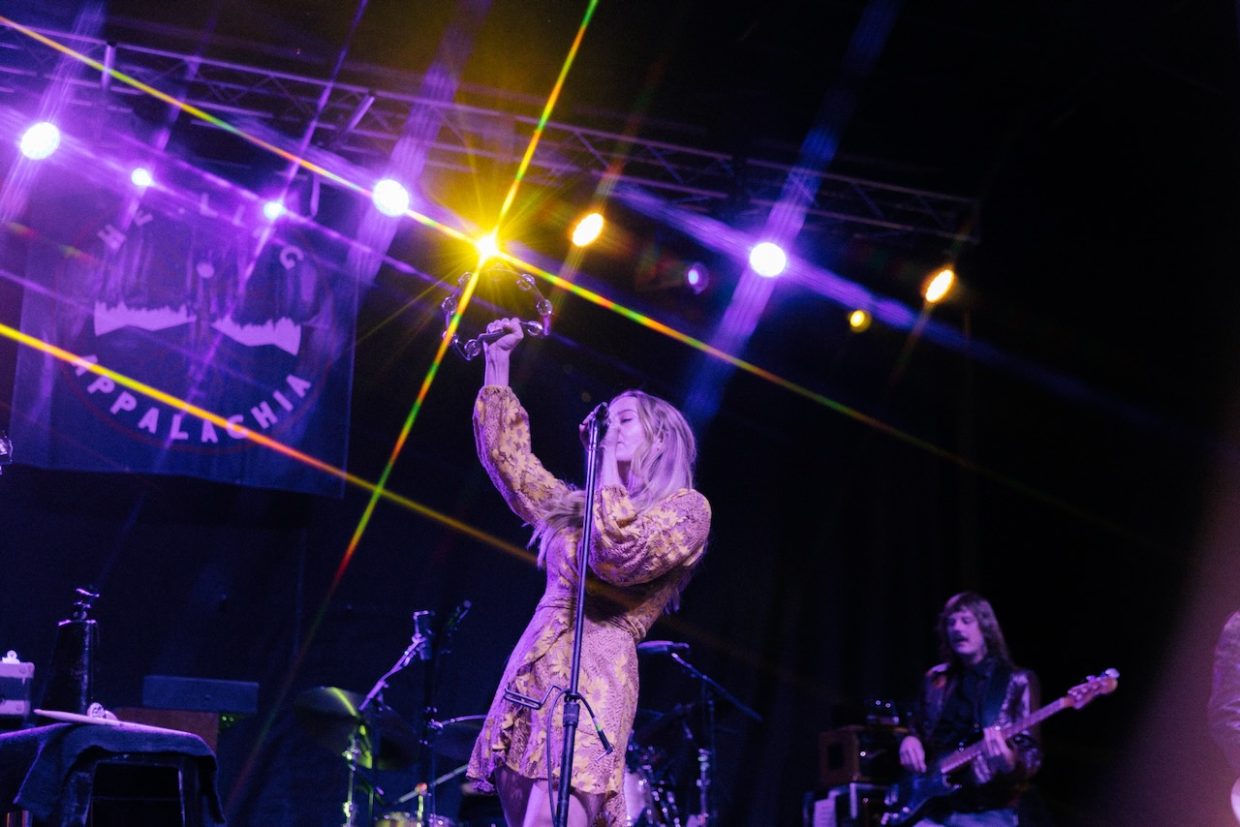
What does a healed Appalachia look like to you?
DL: The problems are many, but the power of collective hope is growing and change is in the air all over Appalachia.
A healed Appalachia spends its riches and resources on mental health and particularly on children, making sure they are loved, nurtured, yet independent, and have all of the coping skills needed. We are now in an era of record kids in foster care and, as we know, childhood trauma is a thread that runs through folks who suffer with Substance Use Disorder. So first order for a healed Appalachia would be a widespread movement and budget shift to help kids in trauma now.
A healed Appalachia is one that has abundant opportunities within a clear line of sight for everyone in the community. A healed Appalachia gives everyone a seat at the table regardless of their past.
I’m a big fan of Brad Smith, who along with John Chambers and others, helping launch and rebrand West Virginia as the start-up state, where we create a really robust small business economy that allows folks here to dream big and launch those dreams here, like Ian, Tyler and the WhizzbangBAM team have done in Huntington, building out a business that builds spiderwebs of creative economy supporting regional musicians and artists.
A healed Appalachia has ample and good-paying sustainable green-energy jobs that pay a living wage and that brings wealth and health and that are not destructive to our beautiful Appalachian Mountains and to the workers.
A healed Appalachia is one with nature, gardening, exercise and healthy lifestyles that bind us to our beloved mountains and valleys.
A healed Appalachia talks less about politics and more about community and being a good neighbor – as the wonderful new Tim O’Brien song, “Cup of Sugar,” suggests we should do.
A healed Appalachia is full of true forgiveness, grace and second chances for folks, making forgiveness not just an often-trotted out word in a book but something real and necessary to heal our communities.
I think that’s probably enough healing or I’ll have to send you a doctor’s bill… [Laughs]
(Editor’s Note: Read part one, our conversation with Hope in the Hills board vice president and WhizzbangBAM founder Ian Thornton, here.)
Photos by Hunter Way / Impact Media
LISTEN: Veronique Medrano, “Dear Dorothy”
Artist: Veronique Medrano
Hometown: Brownsville, Texas
Song: “Dear Dorothy”
Album: MexiAmericana
Release Date: September 22, 2023
In Their Words: “I wrote ‘Dear Dorothy’ as a playful way to address my luck – or lack thereof – when it came to love in my 20s, and to address the stories that we women tell to and hear from our best friends during a break up. Also acknowledging the hilarity in how life can take the wildest turns, especially when we least expect it. I wrote this song as an homage to my best friend, Dorothy, who passed away, with the hope that the essence of our friendship and humor would shine through. Dating in your 20s is full of wild and crazy stories, and so my thought is… what if after the break up everything went better? This song, along with the many others that I wrote or selected for my album, were to acknowledge and celebrate the seasons of love, heartbreak, independence and self discovery that brought me to the place I am now.” – Veronique Medrano
Track Credits: Written by Veronique Michelle Medrano
Producer: Mariano Herrera, Veronique Medrano
Engineer: Mariano Herrera
Mixing & Mastering: Mariano Herrera, Veronique Medrano
Executive Producer: Mario Davila
Recording Supervisor: Javi G
Recorded at Produce Sound Studios
Photo courtesy of Marushka Media
Buffalo Nichols Champions Blues in the 21st Century
Singer-songwriter and instrumentalist Carl “Buffalo” Nichols loves and treasures the blues, but he acknowledges that his vision of what the music can and should do differs greatly from that of many performers he’s met in the field. Indeed, Nichols, whose brilliant new LP, The Fatalist – his second for Fat Possum, which dropped September 15 – doesn’t mince words when he discusses the issues he faces and the things he wants to see change in regards to the music, as well as attitudes held by many in positions of authority in regards to its promotion and distribution.
“I tell folks I’m a songwriter initially, because when you say you’re a blues musician, then there’s a whole bunch of stereotyped impressions that you’ve got to get beyond,” Nichols said during a lengthy recent phone interview with BGS. “There was a period there a couple of years ago, right after George Floyd, where for a time there was this sense, or at least it was being said, that the blues community needed to change, we needed to diversify, to become more relevant and reflective of things happening in America. But now that seems to have passed, and we’re back to the same old thing. There’s too much conservatism among the older crowd, who often are in control of the blues radio stations and who are responsible for why the music isn’t more widely heard and accepted. And there’s too many artists just putting the same stuff out there.”
Nichols is among a growing number of African American artists anxious to smash idiomatic barriers regarding not just blues, but American music, period. He is a master at carefully paying attention to traditional values like keen storytelling, soulful delivery and expressive lyrics, while also utilizing contemporary elements and devices. The Fatalist includes a stunning cover of Blind Willie Johnson’s majestic “You’re Gonna Need Somebody On Your Bond.” The LP’s first single, Nichols’ robust baritone soars through the message of salvation with vigor, driving home both its urgent intensity and evocative theme. However, Nichols also says the song epitomizes another part of the dilemma he faces regarding broadening the blues’ appeal.
“That one kind of gets caught in a double trap,” Nichols continued. “On the one hand, you’ve got religious lyrics, then on the other you’ve got the blues sensibility. So, while the traditionalists who know Blind Willie Johnson love it, it has a hard time getting past the gatekeepers, because it also has some contemporary production touches. That’s kind of the double struggle you face. You’ve got the white traditionalist and conservative types who are dominating the blues marketplace, then when you’re trying to reach the Black audience, you’ve got what they call the ‘urban contemporary market.’ Because it’s blues they won’t play it.”
Still, Nichols is making some headway on the scene, both critically and in terms of gaining followers. He says he’s seeing a lot more young folks in his audience, as well as more Black fans. Though his appeal and notoriety don’t yet match that of a Christone “Kingfish” Ingram or a Shemekia Copeland, Nichols is steadily gaining more attention and acclaim. He opened several dates last year for Valerie June, another marvelous Black performer whose music incorporates classic and current sounds. He stands prominently alongside other rising blues stars like Gary Clark Jr., Marquise Knox and Eric Gales. The Fatalist reflects the vision and scope of a 30-something performer whose background includes at various times being in a grindcore band (Concrete Horizon), and playing folk and Americana, while also being part of a duo in Milwaukee (Nickel & Rose) with bassist Johanna Rose. His disenchantment with an Americana scene he considered overwhelmingly white and less than encouraging to his artistic vision led him to Fat Possum.
“I really felt it was important at this stage to have a label behind me,” Nichols said in response to a question about why he chose to sign with Fat Possum. “While it’s not the type of thing where we’re sitting down and trying to pick songs for radio, it is a thing where they’ve been very supportive and encouraging. They’ve provided me a place and a forum for what I want to do, and they appreciate my vision and are doing all they can to help me.”
The Mississippi-based label was once widely celebrated for its championing of hill country blues greats R.L. Burnside and Junior Kimbrough, but in recent years had drifted far away from that model. Buffalo Nichols, his debut release, was the company’s first blues outing in two decades. It set the stage for The Fatalist, whose eight songs reveal a strong songwriting focus Nichols says is indicative of both personal growth and his desire to use the blues form to do more than rip through scales and display great individual musicianship. “I’ve been a guitarist for 20 years, but it’s really only been the last 10 that I think I’ve really grown as a songwriter,” he continued. “Being able to express myself is a challenge, and using the blues to do it is what drives me.”
There’s no question that The Fatalist doesn’t necessarily adhere to the standard blues formula, and that’s setting aside the presence of drum machine tracks and enhanced sonic quality. Its song sequencing and overall lyrical flow are edgy and compelling.
Standout cuts like “Love Is All” or “The Difference” offer contrasting views of a relationship. The former is optimism grounded in the wisdom of admitting that even good guys can go astray, while the latter spotlights a breakup that doesn’t so much place blame as document the painful end of something that was once glorious. There’s also the hard-hitting opening number “Cold Black Stare,” and the triumphant finale, “This Moment,” that features special guest vocalist Samantha Rose. The album has a sonic clarity and power that puts it in a league with anything done at a state-of-the-art studio in Nashville, LA, or New York, yet it was recorded in Nichols’ home – and he produced it. The decision to cut it there is also part of a larger career change that Nichols made last year, when he moved back to Milwaukee after spending years in Austin.
“In some ways it’s harder for me now being back home,” Nichols said. “But in other ways it’s good, because now I have to do it myself. I don’t have the machinery or the apparatus or the surroundings that I would have in Nashville or Austin or LA. It’s like it was when I was growing up. I’m being responsible for my own music now, and that’s a good thing creatively, even if from a business aspect sometimes there’s a struggle.”
Buffalo Nichols is now in the midst of an extensive tour, with the American portion running through mid-December, then a European leg beginning in early January and continuing through mid-February (for now). While being adamant about not setting goals, Nichols says he definitely has things he wants to accomplish career-wise.
“For me, I always want to look ahead, I want to progress as a songwriter and a guitarist,” Nichols concluded. “I don’t ever want to make the same music over and over. I don’t want to be predictable. I want to contribute something original, something that when I’m gone people will look back and say that this was something fresh and inventive that Buffalo Nichols made.”
Photo Credit: Samer Ghani
Preview: The BGS Scoop on AmericanaFest, September 19-23 in Nashville, TN
AmericanaFest is HERE! The annual festival, business conference and roots-music extravaganza will once again take over Nashville beginning today, September 19, through Saturday, September 23. While of course we’re most looking forward to our event presented with Queerfest, the Good Ol’ Queer Country Jamboree, on Saturday from 3 p.m. to 6 p.m., the entire week is filled to the brim with must-see, must-hear, must-do events, panels, showcases, parties and hangs.
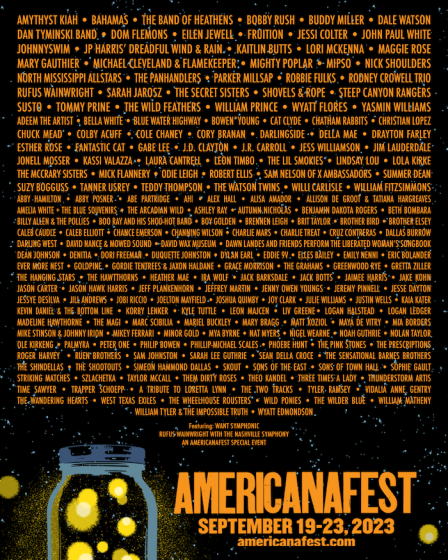
As we do most years, below we lay out a variety of items starred by BGS staff on our AmericanaFest apps – which, BTW, is a festival and conference essential. You can add performances, panels, and keynotes to your own personalized scheduled complete with lineups, panel rosters, details and more. Plus, you’ll be able to easily see which events require special tickets or advance RSVP directly in the app and which are accessible with your conference badge or festival wristband. Download the official app on the app store here. Download via Google Play here. See the full AmericanaFest daily schedule in your browser here.
We want to hear from you, too! Which AmericanaFest events and shows are you most excited for? Which of the more than 200 showcasing bands and artists are at the top of your lists?
Panels, Parties, & Events
Check-in and pass pick-up begin today, Tuesday, September 19, at 12 noon at the Westin Nashville in the Gulch, but most panels and conference programming gets rolling tomorrow, on Wednesday. If you thought ahead, you already RSVP-ed to the Country Music Hall of Fame & Museum’s conversation and performance by two of our faves, Rosanne Cash and John Leventhal, this afternoon at 3 p.m. They’ll chat about their careers plus the 30th Anniversary re-issue of The Wheel – hear a track from that project on BGS here.
There are quite a few more conversations, panels and events we’re eyeing this week around Nashville:
Roots & Branches – Kentucky Music – WED. SEPT. 20 10:00 AM @ The Westin Vanderbilt III
Kentucky poet laureate Silas House – who recently wrote the story behind Tyler Childers’ sensational new music video – will chat with fellow Kentuckians and musicians S.G. Goodman, Kelsey Waldon and Nat Myers about “the history, legacy and current state of Kentucky’s music and the way it has helped to shape American music…” The bluegrass state means more to American roots music than just bluegrass and these folks know it. An enlightening conversation is sure to be had.
Where the Action Is: Americana Artists and Activism – WED. SEPT. 20 11:00 AM @ the Country Music Hall of Fame & Museum Ford Theater *RSVP REQUIRED*
Moderated by veteran BGS contributor Jewly Hight and hosted by the Country Music Hall of Fame, this conversation will feature performances by Adeem the Artist, Mya Byrne, Autumn Nicholas and Allison Russell, all artists who leverage their music making in Americana spaces to advance activist causes, social justice and representation and inclusion. The event promises to connect the present and each of these artists to this vibrant tradition in roots music and folk.
Hillbillies and Hot Dogs – WED. SEPT. 20 11:30 AM to 2:00 PM @ Compass Records *RSVP REQUIRED*
Our friends at Compass Records and No Depression host one of the best hoedowns every year at AmericanaFest, replete with hot dogs and the recording studio that birthed the Outlaw movement. Hear music by Robbie Fulks, Kelly Hunt, Mattie Schell and the business queen of banjo herself, Alison Brown.
NMAAM Songwriters Rounds – WED., THURS., FRI. SEPT 20, 21, 22 12:00 PM to 1:00 PM @ National Museum of African American Music
A music conference and festival in Nashville is the perfect time to visit the National Museum of African American Music, which opened during the pandemic and has slowly but surely built momentum and an audience for the history, culture, and tastemaking of African American music. And situated right in the heart of Nashville’s lower Broadway neighborhood, it’s the perfect venue to make such points. NMAAM’s daily writers rounds will feature artists and songwriters like AHI, guitar phenoms Joy Clark and Yasmin Williams, BGS One to Watch Julie Williams and more.
An Intimate Conversation with Nickel Creek & Sarah Silverman – WED. SEPT 20 1:00 PM @ RCA Studio A *RSVP Required*
You read that right! Nickel Creek and Sarah Silverman in conversation at RCA Studio A moderated by Jewly Hight!? Pinch us! Clearly one event not to miss this week. RSVP is required, hope yours has been submitted long ago!
Indigenous Americana – WED. SEPT 20 4:oo PM @ the Westin SoBro I & II
You are still on stolen land. While you occupy the historic lands of the Cherokee, Shawnee and Yuchi this week, set aside time to appreciate, ingest and center Indigenous music makers, their songs and their stories. This panel conversation on the future of the thriving Indigenous music community will feature Amanda Rheaume, Crystal Shawanda, Nicole Auger of the Indigenous Music Summit and Trenton Wheeler. More events for/about Indigenous music below.
Kentucky Bluegrass, Past and Future – THURS. SEPT. 21 2:30 PM @ the Westin Gulch I & II
From our friends at the Bluegrass Music Hall of Fame & Museum in Owensboro, a conversation about the arc of bluegrass in the bluegrass state featuring BGS contributor Craig Havighurst, Bluegrass Hall director Chris Joslin, fiddler Jason Carter, the legendary Sam Bush, educator and picker Scott Napier, and Jessica Blankenship of the Kentucky Music Hall of Fame.
Who Are the Gatekeepers of Americana Anyway? – THURS. SEPT. 21 4:00 PM @ the Westin Gulch I & II
If your immediate reaction to this panel title is skepticism, this is definitely for you! The roster of Omar Ruiz-Lopez (of Violet Bell), Rissi Palmer and Yasmin Williams immediately indicate this conversation will critically unpack and explore the construction of Americana as a format, just how multi-cultural the music really is, and why that strength is worth spotlighting while we dismantle systems of gatekeeping and exclusion.
Transgender Artists Arriving and Breaking Through in Americana – FRI. SEPT. 22 1:00 PM @ the Westin Gulch I & II
Just a few short years ago there were almost no LGBTQ+ spaces at AmericanaFest, so we’re ecstatic to see a trans-specific space like this opened up at the conference. Hear from Ally Free, Cidny Bullens, Mya Byrne, Paisley Fields and moderator Marcus K. Dowling on historic and current challenges and opportunities for trans, non-binary and gender non-conforming Americana musicians.
From ‘Queer Jolene’ to ‘Pay Gap’: Teaching Social Issues Through Americana in the Classroom – FRI. SEPT. 22 3:30 PM the Westin Gulch III
Using two songs as a springboard, scholar-musician Nadine Hubbs and showcasing artist Beth Bombara will be joined by Aimee Zoeller, Ethan Anderson, and renowned writer/thinker Tressie McMillan Cottom to discuss the use of Americana music and texts to teach and highlight current issues of race, class, gender, sexuality and identity in university and college classrooms and academic spaces.
Americana Honors & Awards
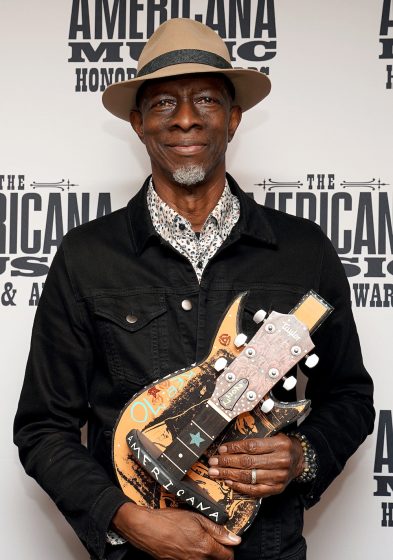
The marquee event of the week, the 22nd Annual Americana Honors & Awards will take place on Wednesday evening beginning at 6:30 p.m. See the full list of honorees and nominees here. The awards show promises appearances and performances by so many Americana friends and neighbors: Adeem the Artist, Allison Russell, Brandy Clark, Jessi Colter, Marty Stuart, Nickel Creek, William Prince, Sunny War and many, many more. Recipients of this year’s Lifetime, Trailblazer and Legacy Awards include The Avett Brothers, George Fontaine Sr., Bettye LaVette, Patty Griffin and Nickel Creek.
Not able to be in the sacred pews of the Ryman Auditorium for the show? You can watch online via Circle All Access’s YouTube Channel or the Americana Music Association’s Facebook page.
Good Ol’ Queer Country Jamboree at Soho House Nashville
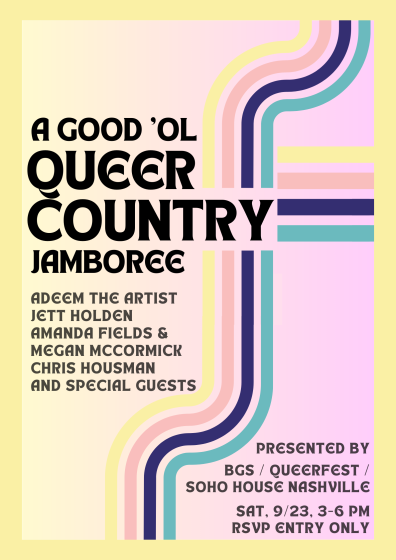
A rare opportunity to utilize the gorgeous facilities of Soho House Nashville at this members-only and conference passholders-only event! Plus, enjoy the absolute best in queer country being made today as we celebrate the announcement of BGS’s new outlet, Good Country, coming in 2024! Space is limited, so make sure your RSVP is in for the Good Ol’ Queer Country Jamboree featuring music by Adeem the Artist, Jett Holden, Amanda Fields & Megan McCormick, Chris Housman and special guests.
You can get more information and RSVP here.
The Good Ol’ Queer Country Jamboree
Featuring Adeem the Artist, Amanda Fields & Megan McCormick, Jett Holden, Chris Housman, and more.
Saturday, September 23, 3 p.m. – 6 p.m.
Soho House Nashville
Showcases, Artists & Bands
Here are just a handful of the showcases, lineups, artists and bands we’ve got our eye on this week:
Americana Proud: A Voice for All – TUE. SEPT. 19 8:00 PM & 9:30 PM @ the City Winery
Hosted by singer-songwriter Autumn Nicholas and Nashville-based drag queen Vidalia Anne Gentry, Americana Proud will bring two showtimes of their highly-anticipated showcase to the City Winery on Tuesday evening, the first at 8 p.m. and another immediately following at 9:30 p.m. Hear from artists and musicians such as ISMAY, Jobi Riccio, Kentucky Gentlemen, Palmyra and many more.
Bourbon & Bluegrass – FRI. SEPT. 22 4:oo PM to 6:30 PM @ the Vinyl Lounge
Join us and our friends from Visit Owensboro and LogStill Distillery for one of our most favorite pairings, bourbon and bluegrass presented by BGS! Fresh off of our rollicking time in Kentucky at Bourbon & Beyond, we’ve still got a hankering for whiskey and tunes – this time from Mama Said String Band and the Owensboro Bluegrass Band. Join us Friday afternoon at the Vinyl Lounge in Wedgewood Houston!
Willi Carlisle
We can’t get enough of this lonesome troubadour’s poetic, old-timey country. He’s in and out of Nashville quick this week, so catch Willi Carlisle’s official showcase at the Vinyl Lounge on Thursday, Sept. 21 at 8:00 p.m. (Read our most recent feature on Carlisle here.) Now THAT’S good country!
Michael Cleveland & Flamekeeper
Fiddler Michael Cleveland burnt down our BGS Stage at Bourbon & Beyond last weekend when he brought on his friend and ours, Billy Strings, as a surprise guest. Later that evening during Strings’ main stage set, he brought Michael out in front of 40,000 roaring fans. We LOVED that moment – don’t miss his official showcase with his band, Flamekeeper, at Analog at the Hutton Hotel on Thursday, Sept. 21 at 9 p.m.
Jessi Colter
This legend of country has a new, Margo Price-produced album, Edge of Forever, out on October 27, so it’s the perfect week to check her off your live performance bucket list. Colter will have an official showcase at 3rd & Lindsley on Wednesday, Sept. 20 at 10 p.m., plus she appears as part of Mojo’s Music City Mayhem on Thursday, Sept. 21 between 3 and 6 p.m. Also some good country.
Della Mae
We’ve been keeping up with Della Mae lately – from Earl Scruggs Music Festival to Bourbon & Beyond to AmericanaFest! – and we’ve loved every second. If you haven’t heard their new four-person lineup, it’s worth checking out this week. If you’re not in Nashville at the conference, stream their newly released Neil Young cover instead. (Below!)
Liv Greene
AmericanaFest is all about discovery and if you haven’t discovered this singer-songwriter yet, this week is your chance. Hear Greene’s award winning songwriting – which is equally winsome and pining while gritty and bluegrassy – on three different occasions throughout the week: Tuesday, Sept. 19, 8 p.m. at Americana Proud at City Winery; their official showcase on Thursday, Sept. 21 at 10 p.m. at the City Winery Lounge; and during the Tribute to the Songs of 1973 Part 3 on Friday, Sept. 22 at 10 p.m.
Jaimee Harris
You know what Jaimee Harris’s music is? Good country! It’s all over this AmericanaFest lineup, for sure. Harris will have your heart firmly in hand with her grounded, earnest and effacing nostalgia. It feels so country and effortlessly Americana, but with endless queer, subversive wrinkles. Get acquainted with Harris and her latest album, Boomerang Town, at several different performances during the week: Tuesday, Sept. 19, 8 p.m. at Americana Proud at City Winery; Thursday, Sept. 21, 4:30 p.m. at the Lone Star Shindig at the Bobby Hotel; Friday, Sept. 22, 1:20 p.m. at Bowery Vault for SHC East Coast Social Club; her official showcase on Friday, Sept. 22, 8 p.m. at the City Winery Lounge; Friday Sept. 22, 11 p.m. at the Basement East for A Tribute to the Songs of 1973; and Saturday, Sept. 23 at Dee’s Country Cocktail Lounge at 1 p.m.
Lola Kirke
All of Lola Kirke’s exes live in LA, so luckily she’s in Nashville this week! Kirke was a highlight of our BGS Stage last week at Bourbon & Beyond in Louisville before heading to AmericanaFest, where you can see her at SiriusXM Outlaw’s Americana Most Wanted guitar pull on Thursday, Sept. 21 at 12 p.m.; also see her official showcase at the Blue Room on Thursday, Sept. 21 at 10 p.m.; and at Imogene + Willie’s Round Up – a free, unofficial, buzzworthy event certainly worth a drop-by at least – on Friday, Sept. 22 at 7:15 p.m.
Native Guitars Tour – Voices of Native Americana – THURS. SEPT. 21 12:00 PM to 4:00 PM @ The Blue Room
Native leaders in music, art and fashion will bring authentic songs and stories to the Blue Room at Third Man Records on Thursday afternoon. Hear from Dach Martin, Jir Anderson, Levi Platero Band, Mike Bruno & the Myriad Mountains, Mozart Gabriel, Olivia Komahcheet, Rico Del Oro, Sage Bond and Scotti Clifford. From Native blues to crooning country and everything in between.
Emily Nenni
Get your boot scootin’ in while you’re in Nashville with honky-tonker Emily Nenni, whose country & western picked up a few tricks and twists in California’s Bay Area before landing in Music City. Nenni will jam a handful of Nashville shows into a packed tour week that takes her away from and back to AmericanaFest in the blink of an eye. Hear her at Honky Tonk Tuesday at the American Legion in East Nashville on Tuesday, Sept. 19; plus an appearance at Musician’s Corner at Centennial Park on Friday, Sept. 22 at 4:35 p.m.; and her official showcase at Eastside Bowl on Saturday, Sept. 23 at 10:30 p.m.
Autumn Nicholas
Nicholas has already appeared on this preview in a few places, and rightly so, as the North Carolinian Black Opry alumnus continues to build momentum behind their stratospheric voice and introspective, emotive songs. Hear the voice Nashville has been buzzing about for months – and that will open for Jason Isbell at the Ryman this fall – throughout the week: Tuesday, Sept. 19 at Americana Proud at City Winery, 8 p.m. and 9:30 p.m. shows; “Where the Action Is” panel at the Country Music Hall of Fame on Wednesday, Sept. 20 at 11 a.m.; and their official showcase at the Basement on Friday, Sept. 22 at 8 p.m.
Queer Cowpoke Roundup – SAT. SEPT. 23 2:00 PM to 5:00 PM @ the Groove
On your way to/from the Good Ol’ Queer Country Jamboree at Soho House on Saturday, stop by the Groove record shop in East Nashville for another LGBTQ+ centered event, the Queer Cowpoke Roundup! With music by Austin Lucas, Julian Talamantez Brolaski, Julie Nolen, Melody Walker, Mercy Bell, Secret Emchy Society, Shawna Virago and Wiley Gaby plus a special tribute to the legacy of Lavender Country and Patrick Haggerty to kick it all off.
Jobi Riccio
We are sweet on Jobi Riccio’s new album, Whiplash, a showcase of powerful, talented songwriting done up in checkered gingham and starchy denim and the perfume of broken in leather. We’ve had our eye on Riccio for a few years now, so it feels gratifying to watch the music industry discover and get behind the Berklee graduate. Hear Riccio perform during the Americana Honors & Awards on Wednesday night, but also elsewhere during AmericanaFest: Tuesday, Sept. 19 at Americana Proud at City Winery at 9:30 p.m.; Thursday, Sept. 21 at WMOT Day Stage at Eastside Bowl at 4 p.m.; and her official showcase will be at Exit/In on Thursday, Sept. 21 at 8 p.m. (Plus, Riccio’s social media tease a “to be announced” appearance on Friday, September 22, so keep your eyes peeled.)
The Shindellas
Americana is all about making music outside the lines, about exploring the rootsy fringes of these genres we all hold dear. The Shindellas are one of the most exciting groups to come out of Nashville in recent memory, but because of their glitz, polish and crisp production values they’re rarely categorized as Americana – which they certainly can lay claim to, through blues, R&B, soul and so much more. Their new Louis York-produced album, Shindo, drops in October, so make sure you catch them this week on Saturday. You’ll be glad you did! See the Shindellas at the 11th Annual Thirty Tigers Gospel Brunch at the City Winery, Saturday, Sept. 23 11:00 a.m. to 1:00 p.m.; and their official showcase at the Basement East on Saturday, Sept. 23 at 7 p.m..
Dan Tyminski
The man, the legend, he needs no introduction to the BGS reader (except, perhaps, when introduced as his mononym, Tyminski). Hear Dan fresh off his Bourbon & Beyond appearance on the BGS Stage with his new bluegrass band lineup, who are certainly worth a listen, at their official showcase on Thursday, Sept. 21 at 10 p.m. at the Analog at the Hutton Hotel. This new lineup of pickers backing up the famed voice of George Clooney on O Brother, Where Art Thou? are one of the most exciting things to come from Tyminski, musically, in the last handful of decades.
Yasmin Williams
If you’ve never seen Yasmin Williams play guitar, prepare to have your mind blown. Her approach to the instrument doesn’t just wow her audiences, it wows her fellow guitarists as well, from Bryan Sutton to Tommy Emmanuel. We’ve been fans of Williams for more than a few years, since before her Shout & Shine appearance even, and we’re glad to catch her again this week at AmericanaFest: “Wide Open Spaces – The Rise of Ambient Americana” Panel, Thursday, Sept. 21, 1 p.m. at the Westin Gulch I & II; “Who are the Gatekeepers of Americana Anyway” Panel, Thursday, Sept. 21, at 4 p.m., the Westin Gulch I & II; NMAAM Songwriters Round Friday, Sept. 22 at 12 p.m.; and her official showcase Thursday, Sept. 21 at the Blue Room at 9 p.m.
Poster graphic and photo of Keb’ Mo’ courtesy of the Americana Music Association.
Lead images: Yasmin Williams by Kim Atkins Photography; Amanda Fields & Megan McCormick by Lindsey Patkos; Adeem the Artist by Shawn Poynter; Michael Cleveland by Amy Richmond.
